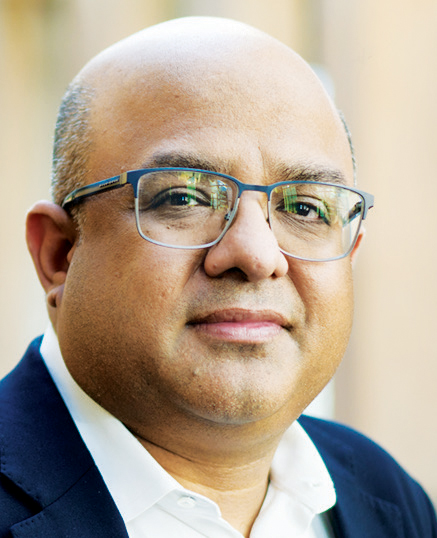“What we speak becomes the house we live in”
 |
| Dr Ahmer A. Karimuddin |
Health care in British Columbia and across Canada has been shrouded in negativity for quite some time. This is mostly because there are too few of us looking after increasingly complex patients, across diverse geographies and patient populations. We often have limited resources to provide patients with the care they need and deserve. Sometimes we find ourselves having to overcome many hurdles just so our patients can get the best care possible. If we don’t take on this work, who will?
Despite our daily challenges, it is inspiring to be reminded that, as practising physicians, every one of us carries enormous power. In an increasingly fractious world that is distrusting of authority, doctors are still trusted by more than 90% of Canadians. How we interact with our patients and with each other, what we stand for, and what we choose to fight for truly matters. Every day, we hear more and more from British Columbians about how much they value longitudinal family practice. We hear how much they value their encounters with doctors and how much it means to them when we simply do our job.
Precisely because we are valued and have influence, how we conduct ourselves and how we speak during these challenging times matters. In our interactions with our patients and with each other, we must speak with hope. We must speak with an understanding that, in these challenging times, we will make things better if we work together—with each other, with our patients, and with those who have responsibility for the health care system. Especially if we are willing to do the hard work to make it better, together.
In the words of Persian lyric poet Hafez, “What we speak becomes the house we live in.” If we speak a language of hope and togetherness, that is the future we will build for our health care system. When our patients come to us in distress, we can lead by acknowledging their pain, conceding that others may have let them down, and assuring them that they can trust and depend on us. In providing our patients with hope, we give our own work and lives purpose. Whether in our role as doctors looking after one patient or as health care leaders looking after entire populations, the least we can do for our patients and those we have responsibility for is to give them hope.
In that spirit of hope and togetherness, Doctors of BC and the profession need your energy and your voice. In November, you will be voting for a number of leadership positions within Doctors of BC. Please use your voice to vote for leaders who offer hope and unity for the years ahead. More so, consider taking on positions of leadership yourself, whether within Doctors of BC or in the profession as a whole, in your local networks, medical staff associations, and divisions. The health care system must change, but to do this, it needs all of us working together, to make things better together.
—Ahmer A. Karimuddin, MD, FRCSC
Doctors of BC President
hidden
 |
| This work is licensed under a Creative Commons Attribution-NonCommercial-NoDerivatives 4.0 International License. |



Thanks for your wise comments. There is a corrosive discourse in medicine - now an occupation full of moral distress, interminable care access delays or blocks, crushing administrative and charting, and increasing expectations from patients. I've seen learners at a junior stage of their training journey expressing cynicism and hopelessness and seeking (sub)specialization as a possible escape from the challenge of primary care. It's no wonder family practice residents are choosing to avoid longitudinal primary care. Hafez's words from 1350 are wise counsel for us in 2024.
We have a branding problem in medicine. This profession remains, as you say, one of the most important in society, with rewards far beyond financial. Health care needs leaders who foremost, promote medicine and specifically, primary care, as an enriching profession that places the doctor-patient relationship as central to the work. When care becomes transactional and overwhelmed by competing obligations, physicians can lose our grounding in how satisfying having relationship with patients can be. I hope our next DOBC president is one who inspires instead of focusing on a set of grievances, who promotes the story of medicine where 'care' is the guiding philosophy of the work.